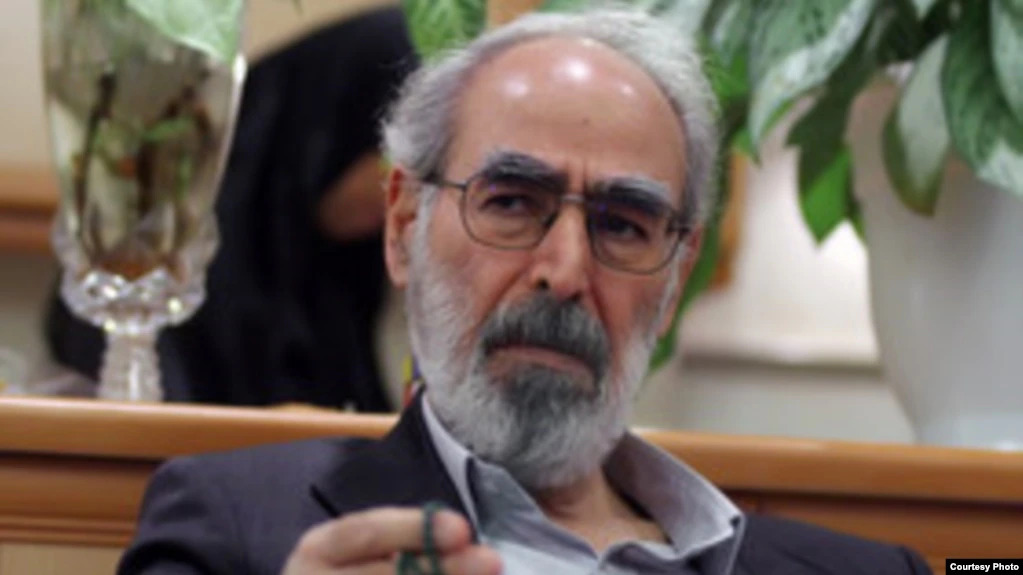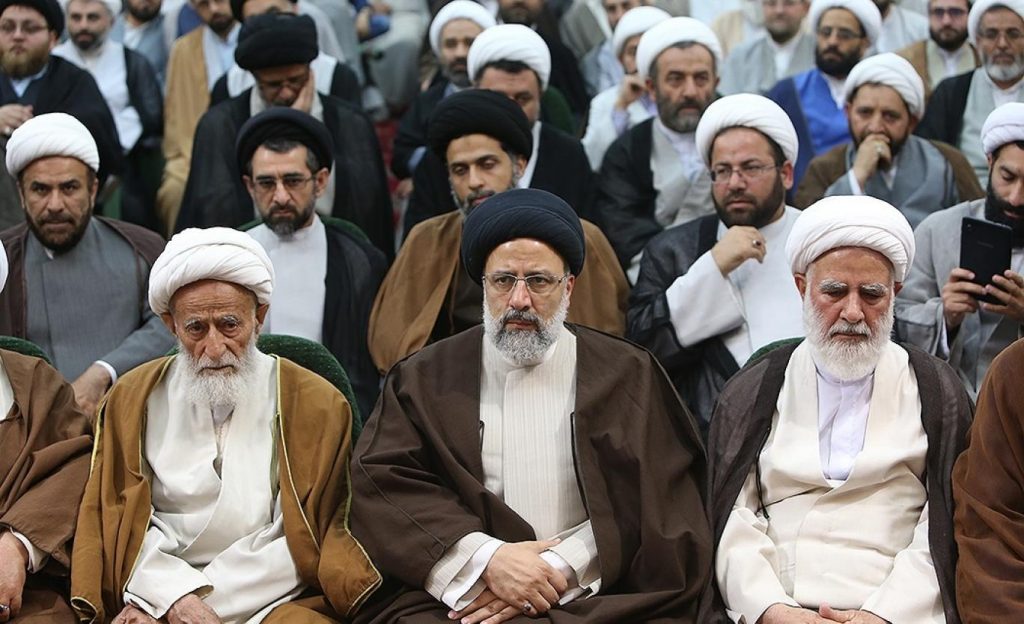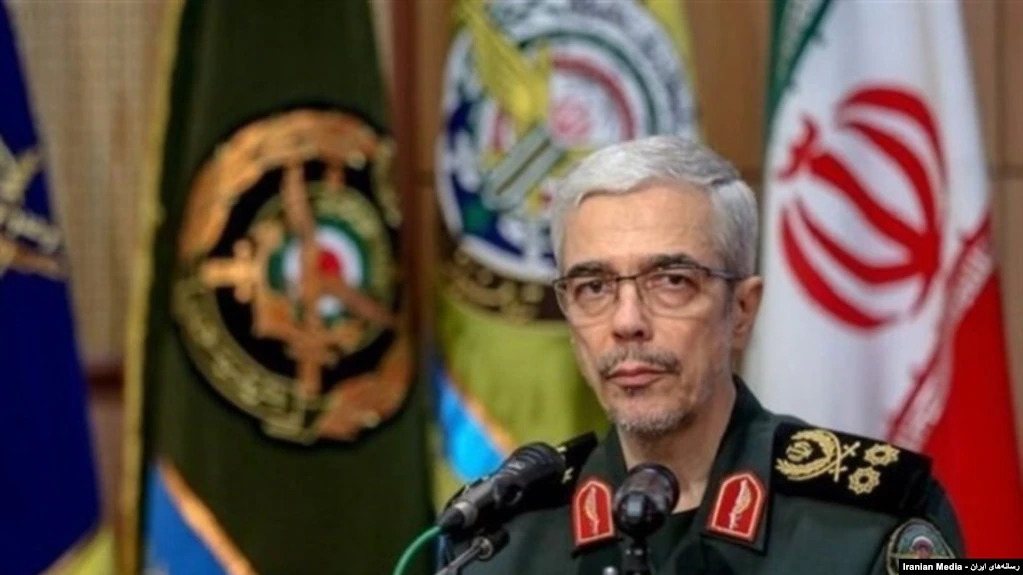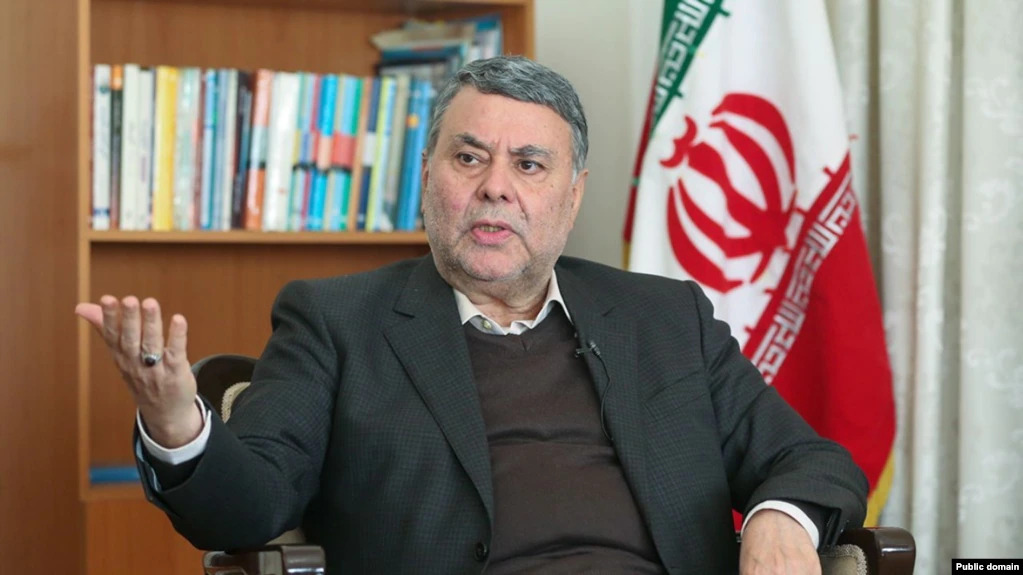
Where Did It All Go Wrong?
The editorial of Jomhouri Eslami calls for the government to identify the root cause of problems, instead of simply dealing with the symptoms.
There is no doubt that Iran is in poor condition. Economic, cultural, security, moral and social norms are all deteriorating. Denying these problems, as some do, is useless. Such denials are self-deceiving, and if those who make such claims do not believe them, then they are deceiving others. This is damaging to the country and people. Instead of such deceptions, they must admit the problems and look for solutions.
This is not a new problem; all governments in Iran have suffered from it. So, disputes between different political factions and activists in which they try to blame each other for the existing problems are useless.
Perhaps the main problem is that no one is after identifying the main cause of the problem, and everybody is only dealing with the symptoms. Worse than that is the fact that some do not even admit that the country is not in good condition, and if anybody says so, he will be maligned.
So, before anything else, Iranian officials must be convinced that these problems exist and are real and they must be seriously after resolving them. Basically, looking for someone to blame is one of the errors which hinders finding a real solution for problems. As a matter of fact, everybody is to be blamed, and there is no need for punishment.
Continuation of inattention to these problems is betraying the country, the nation, and the establishment, which might lead to the point of no return.
Iranian officials must not overestimate the relative calm which exists now, mistakenly thinking that everything is moving forward as they want to. They must not think that with executions and severe punishments, they can resolve the issue. These are just short-term measures and will not really resolve the issues. Blaming it all on other countries is also a mistake which must be avoided.
The 1979 revolution in Iran had high goals like justice, support for the deprived, eliminating class disparities, defending human dignity, people playing a role in their own destiny, providing welfare for all, etc. The main error was made when these goals were discarded. And if the ensuing damage from this grave error is not fixed, Iran will not feel good.
Global Trade
The editorial of Mamlekat argues that even if Iran can reach an agreement with the West over the nuclear deal, it will just be the first step in the right direction, as the country needs major changes in management to increase production and restore trade with the world.
While some Western media and even Russia’s representative in the nuclear negotiations have talked of an imminent agreement over the proposed text by the EU, Tehran and Washington have not taken any clear stand toward this proposal with a shadow of doubt still over the nuclear talks in Vienna.
Resuming the nuclear deal can create some opening in Iran’s economy because some of Iran’s blocked assets will be released after that. Yet it remains to be seen if Iran will be allowed to sell oil. If Iran can sell oil, many economic challenges will be resolved.
Of course, the nuclear deal will only resolve the economic problems in the short-run, and the government must think of mid and long-term solutions for social problems.
It has been constantly urged that Ebrahim Raisi’s government, just like previous ones, needs the nuclear deal, and its objections to the deal are just political gestures, as Iran’s economy depends on trade with the world which is only possible if an agreement is reached over the nuclear deal.
The nuclear deal, however, is only the first step. In the world of trade and commerce, management comes first, but Iran has problems in the field of management.
Signing memorandums of understanding with neighboring countries is not the solution. The solution is to replace the inexperienced managers who are running the country now. This management must be replaced so that there is prosperity in production, the issue of unemployment is resolved, and other economic problems too are dealt with. Otherwise, Iran’s economy will keep relying on oil, and oil revenue will be used to meet economic challenges.
No One Is Accountable for Air Pollution
The editorial of Arman Emrooz underscores the need to form a ministry for dealing with environmental issues including air pollution.
When the official in charge of the environment is a deputy to the president, any president can appoint whoever he wants to this position, and those individuals are not accountable to anyone. Today, if the Iranian Parliament wants to hold someone accountable for air pollution, it must bring the president to the Parliament.
The Parliament is going to form a commission for environmental issues, just as it has a commission for economic conditions, which has not been successful at all. But in lieu of forming a commission for environmental issues, Iran must first have a ministry to replace the Department of Environment for dealing with environmental issues.
The issue of water shortages depends on different factors including precipitation and environmental conditions. But the issue of air pollution is different and when the organizations in charge of it do not follow up on the issue, it does not make any difference if there is a special commission in the Parliament regarding it.
There must be a ministry for environmental issues first, so that its minister can be summoned to the Parliament and be held accountable. But when there is only a deputy to the president in this regard, he will not be accountable to the Parliament for the environmental issues that exist. The same problem existed regarding the Cultural Heritage Organization which was resolved by forming a ministry.
Issues like air pollution in Tehran are usually not taken seriously which cause a lot of harm. For more than a week, Tehran’s schools have been closed, causing a lot of problems. Besides, there is an increase in diseases because of pollution which is costly for families and the Health Ministry.
Many entities like the Department of Environment, the municipality, the Ministry of Industries and Mines, law-enforcement forces, etc. are involved in environmental issues, but none of these entities accept responsibility when criticized. All of them claim that they have fulfilled their duties, blaming others for not doing their part.
So, there must be an individual to be held accountable in this regard, and he must be a minister appointed after the formation of the ministry. In so far as there is no minister for the environment, issues from fresh air to economic considerations, will soon become more serious because of climate change and face serious risks.
Try It on Yourselves First!
The editorial of Etemad makes a hypothetical suggestion, asking the Iranian authorities to send their family members to North Korea and then ask them how they feel about living in a country disconnected from the internet and the rest of the world.
Those who are against free cyberspace in Iran are not just talking; they have taken action as well. The Ministry of Communication has blocked people’s access to the internet by restricting the internet and decreasing its bandwidth, and it is not important for them how this decision has infuriated citizens. Ebrahim Raisi’s government must be proud of itself in this regard!
Those officials who are talking against freedom of cyberspace can create an internet in which only domestic platforms exist without any problematic issues and unwanted influence. Then all their family members including spouses, children, brides, bridegrooms, grandchildren ought to be moved to a city where only this internet is available. Not for a long time, but only for two weeks.
Then they can ask these families about their new lives, allowing them to speak freely without censoring themselves. After that, they can implement the result of that policy all over the country. Iranian officials know beforehand what the result will be.
One might say that creating such an environment is not possible or is very difficult. An alternative is sending their family members to North Korea for two weeks to stay in the most luxurious hotels and resorts.
North Korea is a clean country in this regard: no cyberspace, no internet at all. After two weeks, their families can return and tell them what they think of living without having access to cyberspace.
If the authorities want to enforce extensive filtering and restrictions on cyberspace, they must first try it on their own family members to see what they think of the world without cyberspace and the internet.

Iran-based Activist Calls Khamenei an Example of “Corruptor on Earth” and “Mohareb”

Political activist Abolfazl Ghadyani called Supreme Leader Ali Khamenei the “worst enemy of the Iranian nation,” adding, “rest assured that this regime will be gone.”
Ghadyani referred to the recent trumped-up charges of “moharebeh” (“waging war against God”) and “corruption on Earth” imposed on jailed protesters, noting “it is in fact Ali Khamenei himself and his repressive allies who are the absolute examples of corruptors on earth and “mohareb” because all they do is create terror in society.
100 days after the recent protests in Iran, a significant number of protesters are facing execution after being charged with “moharebeh.”
Ghadyani, who used to be a senior member of the “reformist” party Mojahedin of the Islamic Revolution of Iran Organization, stated that the protesters have only defended themselves against the security forces who wanted to kill them.
“These young individuals who take to the streets are children of families who are frustrated with this regime with their entire being,” stated Ghadyani, “but the new generation has a remarkable courage, saying they have nothing to lose any more.”
In a video interview released by BBC Persian, this former revolutionary turned dissident also pointed out that some of those who have been at Khamenei’s service for 40 years, arresting people and killing them, have recently encouraged the supreme leader to back down a little, but he [Khamenei] smacked them in the mouth.
“Ali Khamenei has no support among people. He knows it. So do his repressive forces. People hate them and have expressed this hatred in many ways,” stated Ghadyani who has been arrested and imprisoned several times himself.
He also remarked that the Iranian leadership is “unique in corruption and exporting corruption” to the world, adding, “they have used religion as an instrument for repression and plundering.”
Society of Seminary Teachers of Qom: Keep Executing; Chop off Hands, Feet of Protesters

In a statement in defense of recent measures by the Iranian government against detained protesters during the nationwide uprising, the Society of Seminary Teachers of Qom called for the continuation of carrying out execution sentences against protesters.
The society alleged that those in favor of the execution of protesters represent the majority of the Iranian people, expressing gratitude to the Iranian judiciary for issuing death penalties for protesters and charging them with “waging war against God” and “corruption on Earth.”
The Society of Seminary Teachers of Qom, which is the one of the most important clerical organizations in Iran, also called for “chopping off the hands and feet” of those who take part in the protests.
While the society talks of the “Islamic mercy” of the Iranian government, so far at least 506 protesters have been killed by Iranian security forces and it is estimated that more than 18,500 individuals have been arrested.
Javad Mojtahed Shabestari, member of the Iranian Assembly of Experts, has also endorsed charging detained protesters with “waging war against God” and executing them, urging that if the Iranian government shows mercy toward them, “the riots will not stop.” Emphasizing the use of the death penalty as a lesson to protesters, he stated that “if we want the riots to come to an end, we must call for decisive confrontation with those who have been deliberately and actively leading [the protests].”
Despite the strong disagreement of many clerics and domestic and international political groups against issuing heavy sentences and the death penalty for protesters, the Iranian judicial system keeps handing out execution sentences to protesters. So far, 70 people are charged with “waging war against God” and “corruption on Earth,” facing the risk of being executed.
Furthermore, there are reports of brutal treatment of political prisoners and those arrested during the protests in prisons, with women prisoners reportedly being sexually and physically harassed.
Iranian Military Chief: We Will Continue Drone Cooperation With Countries

While Western countries have called for an end to Iran sending drones to Russia that are used in the Russia-Ukraine war, Chief of Staff for the Iranian Armed Forces Mohammad Bagheri called the West’s stand as “creating an atmosphere” against Iran, urging that Tehran will continue its drone cooperation with other countries.
Bagheri added that creating an atmosphere against the use of Iranian drones in the Russia-Ukraine war is a part of the “enemy’s psychological warfare,” claiming that “in fact, it shows Iran’s influence and significance and high rank in the field of drones”
He also stated that the Iranian military will keep on moving forward in the field of drone development, adding that in accordance with the Iranian government’s policies, “we will establish drone cooperation with other countries.”
Kyiv and Ukraine’s Western allies have accused Russia of using Iran-made drones for attacking Ukraine, inflicting massive damage on civilian and energy infrastructure.
In reaction to this measure by Russia and Iran, the West imposed sanctions on several Iranian companies and individuals including Mohammad Bagheri.
Tehran initially denied providing weapons to Russia in its war against Ukraine, but in November, Iranian officials admitted that before the Russian invasion of Ukraine in February, they had delivered drones to Russia.
Ukrainian President Volodymyr Zelenskyy in his recent speech in the US Congress called sending drones from Iran to Russia “one terrorist helping another.”
Iran started producing drones in the 1980s and during the Iran-Iraq War.
The United States and Israel have accused Iran of sending drones to its allies in the Middle East including the Lebanese Hezbollah, Bashar al-Assad’s regime, and the Houthi rebels in Yemen.
Iranian Senior Official: Russia Delivered Fatal Blow to Iran on the Issue of Ukraine, Drones

Following extensive international condemnation and Western sanctions against Iran for the attack on Ukrainian civilian facilities and residential areas by Iranian drones that were given to Russia, Mohammad Sadr, a member of the Iranian Expediency Council, strongly blamed Moscow for the sanctions against Iran.
According to Mohammad Sadr, Russia’s recent measures, particularly regarding the use of Iranian drones against Ukraine, were a “fatal blow” to Iran’s international status, resulting in increasing sanctions against Iran.
Sadr, a former diplomat and senior advisor to former Foreign Minister Javad Zarif, added that Russia cannot compensate for the economic damage incurred by Iran due to the sanctions at all.
He has also stated that Russia, after being sanctioned by Europe, has adopted policies which make it Iran’s rival for selling oil and is after taking Iran’s oil market in China, India, and other countries.
For weeks, Tehran denied sending drones to Russia, but with the increase in evidence offered by Ukraine and other Western countries, the Iranian foreign minister eventually admitted that the Iranian government delivered drones to Russia claiming it was “limited and before the Russia-Ukraine war.”
Criticizing the fact that Iran has limited its foreign relations to “China and Russia,” Sadr urged that these two countries’ actions show that they are not only not Iran’s strategic allies, but are after providing for their own interests.
Sadr held that Iran’s foreign policy is not realistic and Iran’s entire economic diplomacy focuses on selling oil to China which is done with discounts and a lot of problems. He underscored that with sanctions in place and without the ratification of the FATF bills, economic diplomacy cannot be successful.
The United States, Canada and the EU have imposed sanctions against the Iranian government in reaction to the crackdown on Iranian protesters, as well as for sending drones to Russia to be used in the Russia- Ukraine war.
